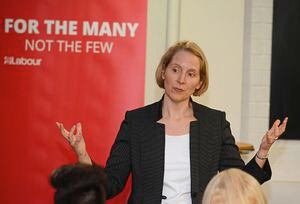City unemployment rate is Government's failure, MP says
A city MP has accused the Government of failing to tackle unemployment across parts of the West Midlands.

Labour MP Emma Reynolds has slammed ministers for "boasting" about national falls in unemployment while ignoring rises in other areas of the country.
She highlights new figures showing that almost eight per cent of the working age population in her Wolverhampton North East constituency are unemployed and claiming benefits, while the number of young people out of work has shot up by 15 per cent in a year.
The number of people claiming unemployment benefit was 3,310 – 585 higher than in April 2018, and 85 higher than March 2019, according to the data. The claimant rate is more than double the national average.
Ms Reynolds said: “The Government always boasts about national employment figures, but has done nothing to help people in Wolverhampton.
"In our city, the number of people on unemployment benefits is actually rising, and our rates are more than double the national average.
“In my constituency, 7.9 per cent of the working age population are unemployed and claiming unemployment benefits. This is more than double the UK rate and the numbers are rising.
"We have nearly 600 more people out of work and claiming support than we did this time last year, and 85 more than a month ago – that’s nearly three more people claiming every day.
“What is particularly concerning is the rise in youth unemployment.
"In my constituency, there are 15 per cent more young people out of work than there were a year ago.
"The Government needs to understand why places like Wolverhampton are seeing rising unemployment, and get young people into work right across the country."
Across the West Midlands, the number of unemployed people fell by 3,000 in the three months to March to 149,000.
Nationally the figure was down by 65,000 to 1.3 million, with the UK's unemployment rate of 3.8 per cent now lower than at any time since the end of 1974.





